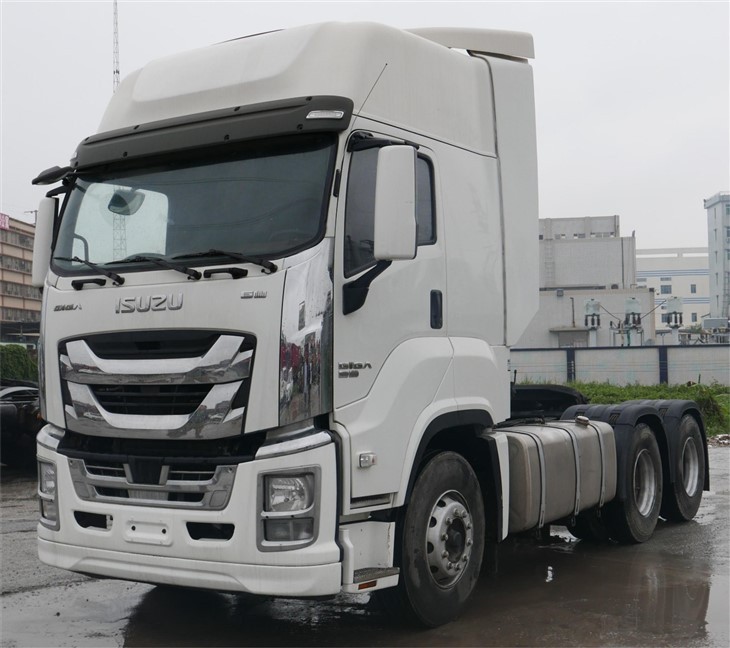In today’s fast-paced world, the transportation of temperature-sensitive goods is crucial for numerous industries. Whether it’s food, pharmaceuticals, or chemicals, maintaining the integrity of these products is paramount. That’s where refrigerated truck trailers, also known as reefer trailers, come into play. In this article, we will explore everything about refrigerated truck trailers, their functions, benefits, and much more.
What is a Refrigerated Truck Trailer?
A refrigerated truck trailer is a vehicle specifically designed to transport goods at controlled temperatures. These trailers are equipped with advanced insulation and refrigeration systems to maintain the desired temperature for various products. Commonly used in the food and pharmaceutical industries, refrigerated truck trailers play a vital role in ensuring the quality and safety of temperature-sensitive goods.
How Does a Refrigerated Truck Trailer Work?
The operation of a refrigerated truck trailer revolves around a few core components:
- Insulation: High-quality insulation materials keep the cold air inside the trailer.
- Refrigeration Unit: Powered by diesel or electricity, it circulates cool air throughout the trailer.
- Thermostat: Monitors and regulates the internal temperature to ensure consistency.
Types of Refrigerated Truck Trailers
There are several types of refrigerated truck trailers, each designed for specific applications:
- Single-Temperature Trailers: Ideal for transporting one type of cargo requiring a consistent temperature.
- Multi-Temperature Trailers: Designed to carry goods that need different temperature zones; they can process multiple types of products at once.
- Controlled Atmosphere Trailers: These trailers offer specific gas compositions for sensitive items, extending shelf life.
Benefits of Refrigerated Truck Trailers
Refrigerated truck trailers offer numerous benefits, which include:
- Preservation of Quality: They maintain the quality and freshness of food products, preventing spoilage.
- Extended Shelf Life: Proper transportation conditions can prolong the shelf life of perishable goods such as vaccines and medications.
- Compliance with Regulations: Many industries require strict adherence to temperature regulations, which refrigerated trailers help fulfill.
Key Features of Refrigerated Truck Trailers
Insulation
The efficiency of a refrigerated truck trailer heavily relies on its insulation. Key features of insulation include:
| Insulation Type | Material | R-Value |
|---|---|---|
| Polyurethane | Foam | 7-8 |
| Polystyrene | Foam Board | 4-5 |
| Fiberglass | Batts | 3-4 |
Refrigeration Units
Modern refrigerated trailers use advanced refrigeration units for better efficiency, including:
- Direct Drive Motors: Offer high reliability and low maintenance.
- Electric Standby Units: Allow trailers to maintain conditions while stationary without running the diesel engine.
Applications of Refrigerated Truck Trailers
Refrigerated truck trailers are utilized across various sectors, including:
Food Industry
Given the perishable nature of food products, refrigerated trailers are crucial in transporting meat, dairy, fruits, and vegetables.
Pharmaceuticals
The pharmaceutical sector depends on refrigerated transportation for vaccines, serums, and other temperature-sensitive medications.
Floral Industry
Flowers and plants require specific temperature and humidity levels during transport to maintain their freshness.
Choosing the Right Refrigerated Truck Trailer
Factors to Consider
Selecting the right refrigerated truck trailer involves several considerations:
- Load Capacity: Assess the weight and volume of the goods being transported.
- Temperature Range: Determine the temperature range needed for your products.
- Duration of Transport: Consider how long goods will remain in transit.
Common Brands of Refrigerated Truck Trailers
Some well-known brands in refrigerated truck trailers include:
- Carrier Transicold
- Thermo King
- Utility Trailer Manufacturing Company
Maintenance Tips for Refrigerated Truck Trailers
Regular Inspections
Conducting regular inspections helps catch issues early. Key areas to check include:
- Refrigeration units
- Insulation integrity
- Door seals and locks
Cleaning Procedures
Regular cleaning prevents cross-contamination of products. Follow these steps:
- Empty the trailer completely.
- Use food-safe cleaning solutions.
- Allow the interior to dry completely before reloading.
Cost Factors of Refrigerated Truck Trailers
Initial Purchase Price
The cost of a refrigerated truck trailer can range significantly based on size, features, and brand. Typically, prices can be categorized as follows:
| Trailer Size | Estimated Price |
|---|---|
| 20 ft | $25,000 – $35,000 |
| 40 ft | $30,000 – $50,000 |
| 53 ft | $40,000 – $70,000 |
Operating Costs
Aside from the initial purchase, consider the following ongoing expenses:
- Fuel costs
- Regular maintenance and repairs
- Insurance and licensing fees
Future Trends in Refrigerated Truck Trailers
Eco-Friendly Innovations
The demand for sustainability is leading to innovations in refrigerated truck trailers, such as:
- Electric refrigeration units
- Solar energy aids
Advanced Temperature Monitoring
Developments in IoT technology are being implemented for better tracking of temperature conditions, ensuring cargo integrity during transportation.
FAQ
1. How do refrigerating systems in trailers maintain the temperature?
Refrigerated trailers are equipped with cooling units that circulate cold air throughout the trailer and adjust the temperature based on the thermostat setting.
2. What is the typical temperature range for refrigerated trailers?
Typically, refrigerated trailers can maintain temperatures between -20°F to 70°F (-29°C to 21°C), depending on the cargo requirements.
3. Can refrigerated trucks be used for transporting non-perishable goods?
While refrigerated trucks are mainly used for perishable items, they can also transport non-perishable goods, especially if temperature control can enhance product quality.
4. What are the common materials used for insulation in refrigerated trailers?
Common insulation materials include polyurethane foam, polystyrene foam board, and fiberglass.
5. How important is regular maintenance for refrigerated trailers?
Regular maintenance is crucial for ensuring the efficiency and longevity of refrigerated trailers, preventing breakdowns, and ensuring product quality during transport.
6. What types of goods can be transported in a multi-temperature refrigerated trailer?
Multi-temperature refrigerated trailers can be used for transporting diverse products like dairy items, frozen foods, and fresh produce at their required temperature zones.



